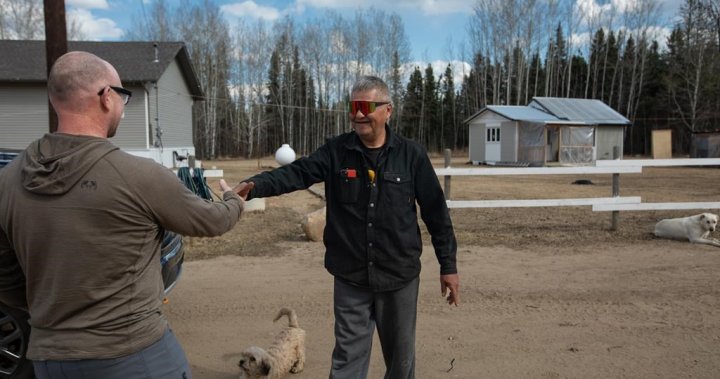Raoul Montgrand, the president of the Chard Métis Nation in northern Alberta, spent nearly two years living in a cramped camper trailer due to the ongoing housing crisis in the isolated community. He and his wife were just one of many families affected by the lack of adequate housing in Chard. Montgrand expressed concern for the community’s children, emphasizing that without proper housing, access to education becomes challenging. The dire situation in Chard reflected a broader issue of Indigenous housing crisis in Canada, where many Indigenous people lived in overcrowded and inadequate housing conditions.
In response to the housing crisis in northern Alberta, Cenovus Energy Inc. launched the Indigenous Housing Initiative in January 2020, pledging $50 million to build homes in Indigenous communities near its oilsands operations. The program aimed to construct 200 new homes in six Indigenous communities, including the Chard Métis Nation. By the end of the five-year program, close to half of the residents in Chard would have received new homes. Alex Pourbaix, former CEO of Cenovus, acknowledged the shocking state of housing in many Indigenous communities, which inspired the company to take action and invest in addressing the housing crisis.
Statistics Canada data from 2021 revealed the extent of the Indigenous housing crisis in Canada, with over one in six Indigenous people living in overcrowded and substandard housing. The report highlighted the need for urgent investment in new homes to address the housing gap in Indigenous communities. While First Nations are responsible for providing and managing housing on reserve, advocates argued that existing funding models were insufficient to meet the housing needs of Indigenous populations. The Assembly of First Nations estimated that over 150,000 new homes were needed to close the housing gap by 2030, requiring significant government investment.
Under the Cenovus Housing Initiative, Indigenous communities were given autonomy to decide how to procure and administer the homes, resulting in a variety of housing styles and sizes, including pre-fabricated and onsite-built homes. The program included a construction and trades readiness program in partnership with a local college to equip community members with home construction and maintenance skills. Pourbaix emphasized the importance of involving Indigenous leadership in addressing the housing crisis, as they are best positioned to understand and solve the challenges faced by their communities.
Building homes in remote Indigenous communities presented unique challenges, including shortages of construction materials, appliances, and furniture, as well as the high cost of transporting these items to the communities. New homes often required expensive utility connections to previously unserviced lots, adding to the overall cost of the housing initiative. Despite these challenges, communities like the Chard Métis Nation were able to benefit from the program, receiving new homes and witnessing the positive impact on residents’ lives. Community members expressed pride and relief in becoming homeowners, appreciating the support provided through the Indigenous Housing Initiative.
The partnership between Cenovus Energy Inc. and Indigenous communities in northern Alberta highlighted the importance of collaborative efforts to address the housing crisis facing Indigenous populations in Canada. By investing in new homes, providing skills training, and empowering Indigenous leadership in decision-making, the program aimed to improve housing conditions and quality of life for community members. The support provided through the initiative demonstrated a commitment to addressing the longstanding challenges of inadequate housing and creating positive change in Indigenous communities.


